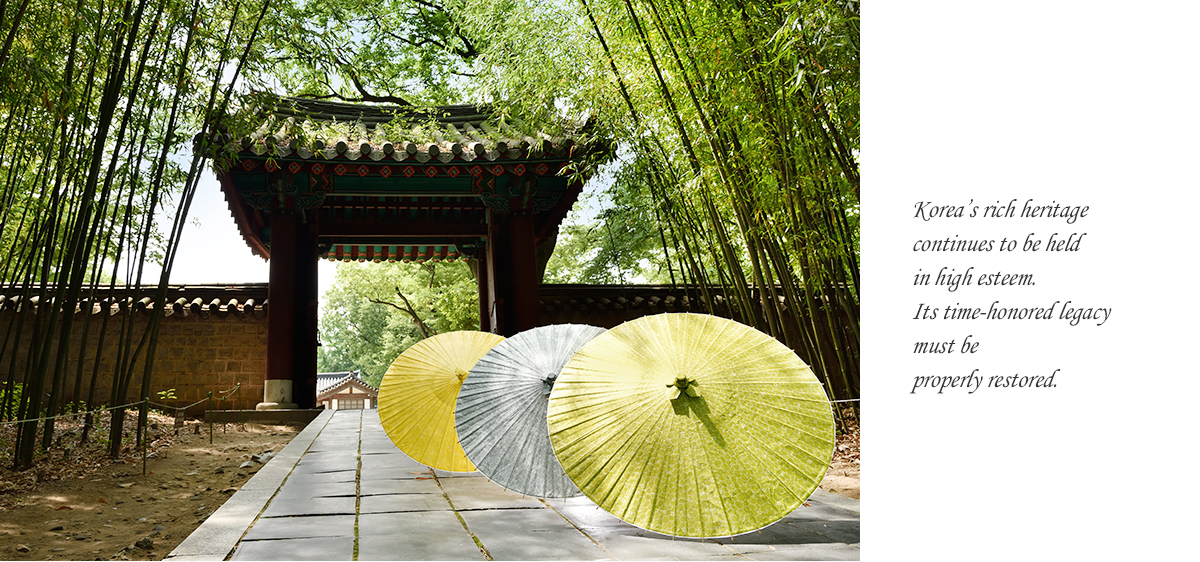The YÉOL Society

The name YÉOL represents a determination to carefully preserve the beauty of the cultural heritage we have inherited from the past.
At YÉOL, we work to promote a proper understanding of Korean traditional culture and to promote public attention and affection for it. We are a gathering of people who seek to protect our cultural heritage.
“YÉOL” was named by poet and novelist Yun Hu-myeong. He describes the meaning as follows:
The syllable “yé” has various positive associations in the Korean language. It connotates beauty, as used in the word “yéppeuda (beautiful)”, can refer to times past, as in “yéro-buteo (long ago), and can be used as an abbreviation for the word “yeogi (here). The Chinese characters used in words and phrases as “yéreul deulda (to give an example)”, “yésul (art)”, and “myeongyé (honor)” are all pronounced with the syllable “yé.”
“Ol” can denote the present and the yet-to-come, as in the word “olhae (this year)”. It is the initial syllable for the verb “olagada (to go up)”. It can also refer to a strand of thread. Because it was thought that only a straight piece of string could be threaded through a needle,
“ol” became the root for words that indicate moral character, like “olgotda (to be honest)” and “olbareuda (to be proper)”. “Ololi” is a mimetic word that evokes a mother’s gentle devotion. The Chinese character 兀, pronounced “ol” in Korean, means “to stand tall on one’s own.”